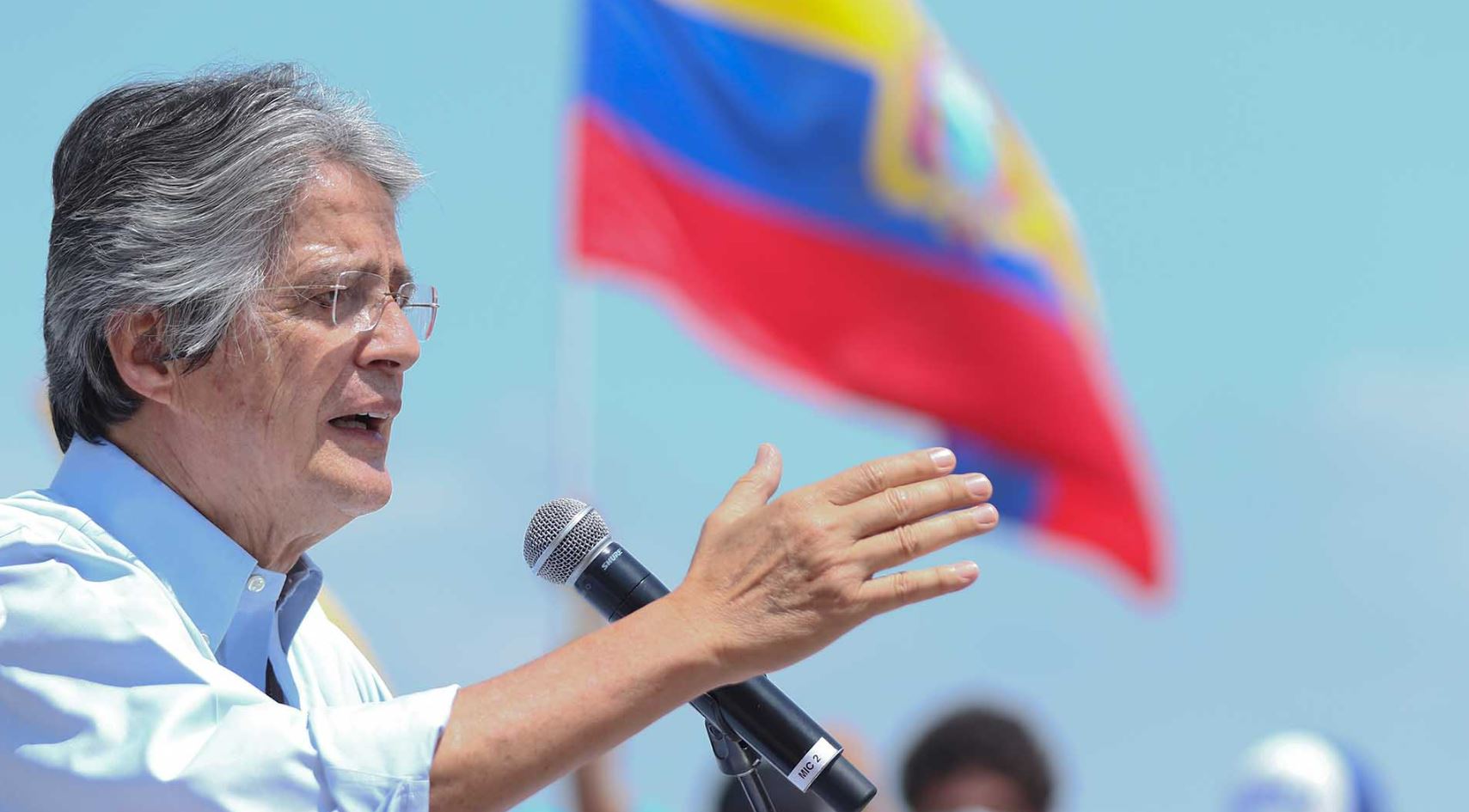Ecuador held elections for mayors, prefects, and councilors this Sunday.
Ecuadorians also had the opportunity to express themselves with a yes or no vote on eight issues up for consultation.
The vote has been polarized between an “all yes” promoted by the government and an “all no” from the opposition.

However, it is possible to vote for the questions individually, one by one.
As the South American country is experiencing the most violent year in its history, President Guillermo Lasso‘s discourse is that he presented the referendum to fight organized crime.
Above all, to make the necessary decisions with citizen support.
Incidentally, according to his detractors, it allows for a survey of the president’s support.
Question one, for example, proposes the extradition of criminals.
This is essential since the Constitution created under the socialist period prohibits it in Article 79.
This, in turn, opens the door to constitutional reforms that would allow reversing the legal order since it currently privileges criminals.
In addition, this issue would help alleviate the prison crisis facing Ecuador.
The country’s prisons have become butcher’s shops due to massacres in the midst of overcrowding.
Being able to extradite foreigners would reduce the prison population.
Border provinces such as Carchi have more foreign prisoners than Ecuadorians.
For example, Ecuador’s largest province, Manabí, was home to an international network of Dutch pedophiles, which is still under investigation.
The main suspect is 50-year-old Matheus Hendrick Uittenbogaard, one of the leaders of the Fraternal Love, Freedom, and Diversity Party (PNVD).
He lived in Ecuador with his “husband”.
For years he tried to legalize sexual relations between adults and children under 12, as well as the free possession of child pornography and sex with animals (zoophilia) in the Netherlands.
Journalism student Martín Mora informed La Gaceta de la Iberosfera that when he made a report, the cyberdata police informed him that there are about 1,800 complaints per year in this area and that 8% of these correspond to grooming.
Legally, grooming corresponds to “any action by which an adult contacts a girl, boy or adolescent through electronic communications, telecommunications or any other data transmission technology to attack their sexual integrity”.
It is not a minor fact that the Mexican Eduardo Verástegui, a champion in the fight against human trafficking, especially against minors, personally traveled to Ecuador to combat this evil. He worked together with the President of Ecuador to work against this scourge.
GREATER AUTONOMY FOR THE PROSECUTOR’S OFFICE
Question two seeks to give more independence to the Prosecutor’s Office.
It would add a Fiscal Council, made up of seven members appointed by the Attorney General of the State and with people outside the Judicial Function.
This would allow the Prosecutor’s Office not to be subject to the government of the day.
REDUCTION IN THE NUMBER OF PARLIAMENTARIANS
Question three, on the other hand, moves to the legislative branch.
It promotes reducing the number of parliamentarians in the National Assembly.
In a country where the minimum salary is around US$450, the fact that legislators exceed US$4000 per month, plus their advisors and allowances, generate indignation.
Although visibly it seems a gain, especially in reducing expenses for the citizen, reducing the number of legislators could cause a problem of representativeness.
At the moment, leftist legislators exceed 70% in the Assembly.
Next, question four seeks to reduce the number of political movements.
Currently, there are 272. This question promotes further consolidation.
It requires a minimum of 1.5% of affiliates and obliges them to keep a periodic registry of their members to the National Electoral Council.
Although the question is not bad in principle, it could be improved.
For example, these formations must cease to be rent-a-movements and respect the established ideology to represent their followers correctly.
Next, question five seeks that the Council of Citizen Participation and Social Control cease to designate authorities and replace them with an oversight function.
This question was changed from its original version.
Before, it sought to eliminate the CPCCS, which is equivalent to the 5th power of the State.
This body was an invention of the XXI Century Socialism and only exists in Bolivia, Venezuela, and Ecuador.
By converting it into an oversight body, it ceases to be attractive to corrupt politicians.
To achieve this, it is necessary to investigate good candidates so that this body does not fall into the wrong hands in case the “yes” vote does not win.
So far, the CPCCS is a public entity elected by universal suffrage.
It is among the electoral ballots to be voted on February 5.
Question six in the referendum would allow the legislators to elect the members, not the citizens.
This opens a gray space, as at the moment, the National Assembly suffers a disapproval rate of close to 80%.
With information from LGI

